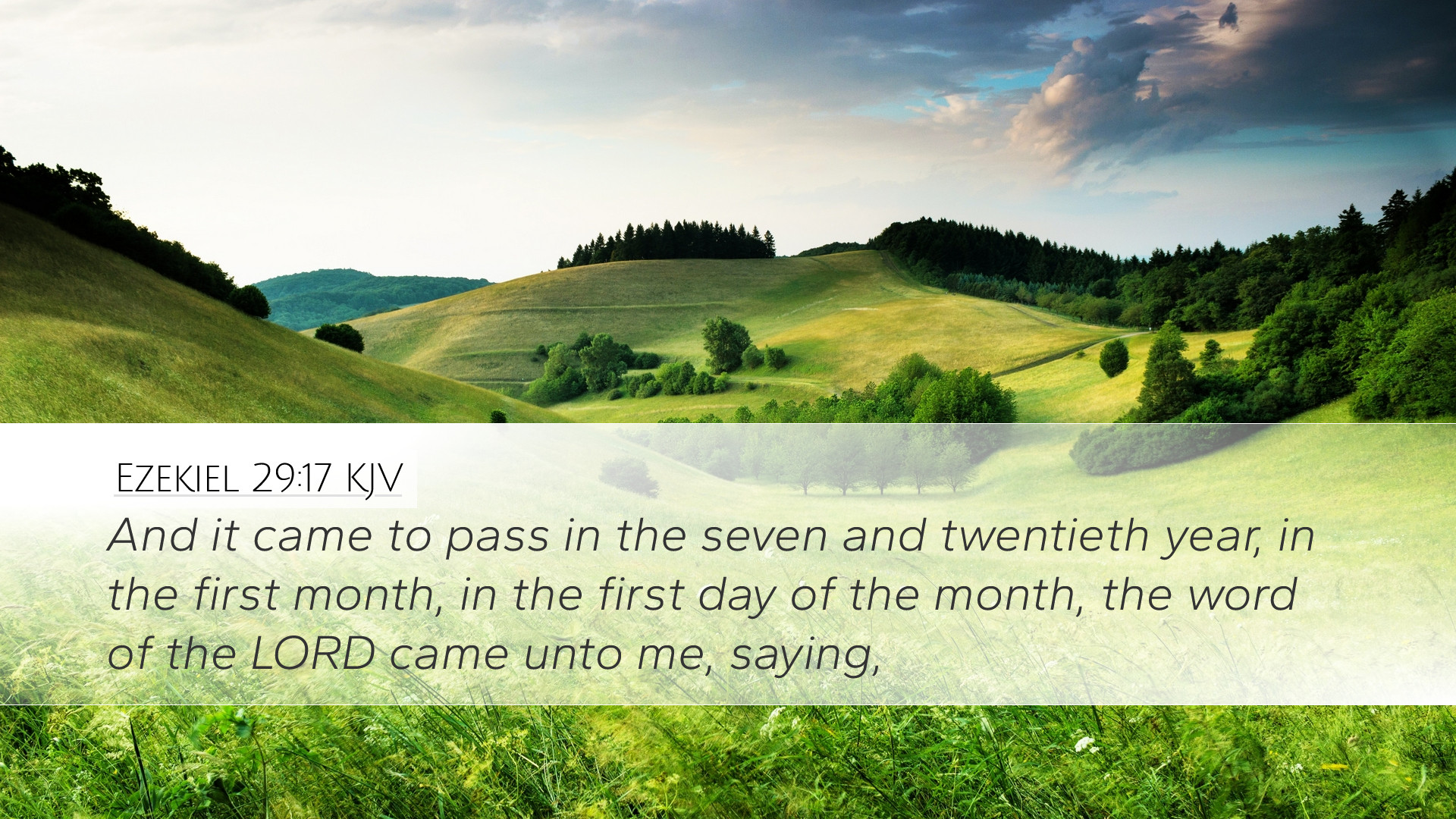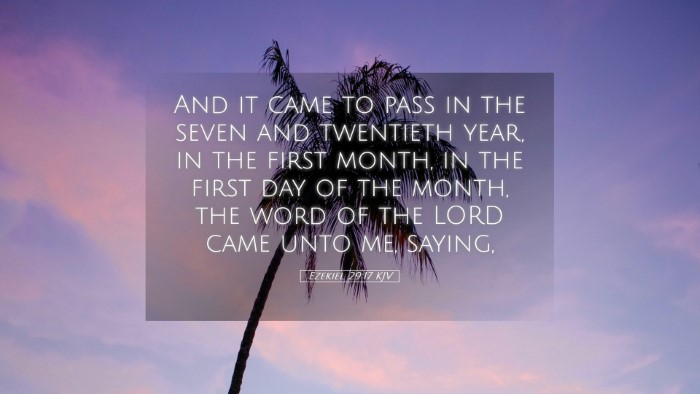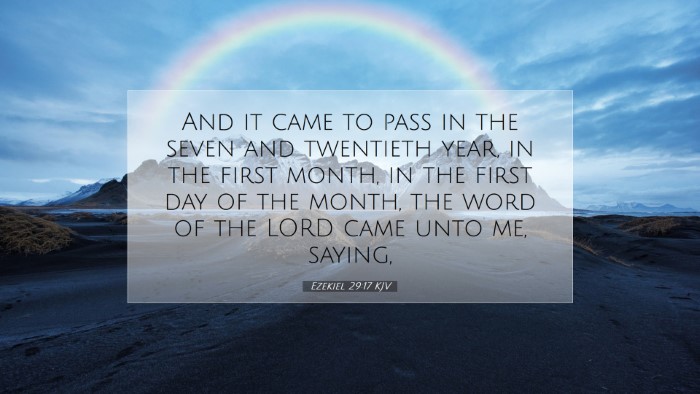Ezekiel 29:17 - Commentary and Insights
Verse: "And it came to pass in the seven and twentieth year, in the first month, in the first day of the month, the word of the LORD came unto me, saying," (Ezekiel 29:17, KJV)
Introduction
The book of Ezekiel presents profound prophetic messages during a pivotal time in Israel's history. This verse, Ezekiel 29:17, marks a significant moment as it transitions into a prophecy directed toward Egypt amidst Israel's own struggles. Understanding this text involves examining its historical context, its implications for the nations involved, and the underlying theological themes expressed through the prophet's words.
Contextual Analysis
Historical Context: Ezekiel prophesied during the Babylonian captivity, a time of great despair for Israel. In this chapter, Ezekiel turns his focus to Egypt, a nation often seen as both an ally and an adversary of Israel. The mention of a specific date, “the seven and twentieth year,” emphasizes the chronicled nature of Ezekiel's prophecies, grounding them in historical reality.
- The Babylonian Exile: The context of the passage highlights the aftermath of the fall of Jerusalem and Judah's captivity. Ezekiel's ministry was centered in Babylon, where many exiled Jews resided. His role was to convey God's judgment and hope.
- Significance of Egypt: Egypt is often cited in the Old Testament as a symbol of oppression and idolatry, but it is also a place where the Israelites sought refuge. Ezekiel’s message suggests a forthcoming judgment against the Egyptians for their pride and false security.
Theological Implications
This passage unveils key theological implications that resonate with both ancient audiences and present-day readers:
- God’s Sovereignty: The repeated phrase "the word of the LORD came" underscores the significance of divine revelation. God actively communicates His plans and intentions to His people through the prophets, highlighting His authority in history.
- Prophetic Timing: The specificity of the timeline indicates that God's judgment has an appointed time. This serves to remind us of the importance of God’s timing in the unfolding of His purposes.
- Judgment and Restoration: While this chapter focuses on judgment, it sets the stage for the eventual restoration of Israel. Understanding God's judgment is integral to grasping His redemptive plans.
Commentary Insights
Engaging with various public domain commentaries reveals enriched insights into this verse:
Matthew Henry
Henry emphasizes the importance of prophetic dates, suggesting that the specificity signifies divine precision in judgment. He points out that the timing not only provides historical grounding but also serves as a reminder that God is not idle; He is aware of the nations and their interactions with Israel.
Albert Barnes
Barnes draws attention to the prophetic implications for Egypt, describing the nation facing inevitable calamity due to its idolatry and self-reliance. In his view, the verse signifies a divine declaration, serving as a warning to all nations that turn from the true God.
Adam Clarke
Clarke notes the significance of the prophetic message delivered on the first day of the month, a day often associated with new beginnings in the Jewish calendar. He interprets this date as not only a marker for judgment but as a precursor to new revelations and opportunities for redemption.
Applications for Today
Reflecting on Ezekiel 29:17, contemporary pastors, students, and theologians can draw several applications:
- Discernment of God's Voice: Just as Ezekiel received clear messages from God, believers today must cultivate the ability to discern God’s voice amid the chaos of the world.
- Understanding Judgment: Acknowledging that God’s judgment on nations, including our own, serves as a vital part of His divine governance and righteous character.
- Hope in Restoration: The promise of restoration speaks powerfully to communities facing despair, encouraging them to seek God's presence and work toward renewal.
Conclusion
Ezekiel 29:17 serves as a profound reminder of God’s active engagement in history and His definitive purposes for nations. Through careful reflection on this verse, alongside the insights from esteemed commentators, readers can embrace the complexities and richness of the biblical text, ultimately fostering a deeper understanding of God's sovereignty, righteous judgment, and the hope of restoration.


